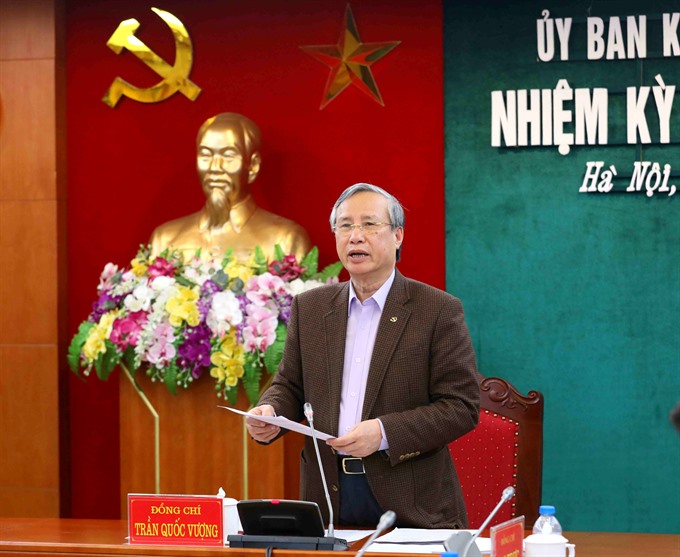 Politics & Law
Politics & Law

The Party’s local level anti-corruption watchdogs were given more power, including ability to order travel bans and request for the ability to freeze assets, to better curb corruption and malfeasances committed by Party members.
 |
| Trần Quốc Vượng, Politburo member, Secretariat member and head of the Central Inspection Committee, under the Communist Party of Việt Nam. — VNA/VNS Photo |
HÀ NỘI — The Party’s local level anti-corruption watchdogs were given more power, including ability to order travel bans and request for the ability to freeze assets, to better curb corruption and malfeasances committed by Party members.
The new charter of inspection commissions was codified in the Regulation 01.QĐi/TW, signed yesterday by Trần Quốc Vượng, Politburo member and Chairman of the Central Inspection Commission, amidst the country’s widening crackdown on corruption and wrongdoings.
The regulation comprises 8 articles arranged into four chapters, outlining responsibilities and jurisdictions of the inspection commission from district-level and higher in combating and preventing corruption
Per the regulation, any Party member who commits wrongdoings and is involved in corruption would be reviewed, questioned, and punished according to Party code and existing laws, no matter what their position is. This provision for broader jurisdiction of the inspection commission over Party members was the materialisation of the much talked-about ‘no forbidden zone’ that frequently made it into anti-corruption rhetoric made by Party leaders in recent years.
The regulation also states that Party members and organisations who were deemed to have “condoned, covered up, obstructed or illicitly interfered with the investigation of corruption cases” will be strictly dealt with.
Corruption prevention-wise, the inspection commissions are asked to ensure transparency and verification of asset disclosure of Party members, with inspection results being public on mass media. Increased surveillance will be exercised over Party members whose assets and income are questioned by the public, the regulation reads.
The commissions now have the rights to “demand Party members not leave the country,” or if necessary, ask concerned authorities to enforce temporary travel bans against Party members stained with corruption allegations who showed hints of attempting to flee the country.
They can also inquire law enforcement authorities to carry out “asset distraints, asset freezing, and other necessary measures” as prescribed by the law in case the Party members under investigation tried to disperse or hide their assets.
Furthermore, the commissions have been tasked with the responsibility of ensuring the protection of whistleblowers from retaliation and to punish Party members who commit retaliative acts.
Party members involved in corruption, but not yet admissible to criminal punishments, could face administrative fines, demotion or being moved to other positions. Increased accountability of leaders of Party organisations where corruption cases are uncovered is also another highlight of the newly inked resolution. — VNS




